 https://sosny.com/wp-content/uploads/2025/08/Meeting-with-client-over-video-call.jpg
1250
2000
Abstrakt Marketing
/wp-content/uploads/2024/04/SOS-Logo-Color-New.png
Abstrakt Marketing2025-07-25 20:42:432025-10-31 20:27:45How VoIP Collaboration Enhances Communication Between Clients and Teams
https://sosny.com/wp-content/uploads/2025/08/Meeting-with-client-over-video-call.jpg
1250
2000
Abstrakt Marketing
/wp-content/uploads/2024/04/SOS-Logo-Color-New.png
Abstrakt Marketing2025-07-25 20:42:432025-10-31 20:27:45How VoIP Collaboration Enhances Communication Between Clients and TeamsThe Revolutionary Role of AI in Document Management
The way organizations handle their documents can be a critical factor in overall efficiency and success. While traditional document management has served its purpose for decades, it often relies on time-consuming, manual processes that slow productivity and introduce risk. Artificial intelligence is transforming how businesses store, process, and interact with documents.
Let’s explore how AI is reshaping document management systems, the technologies driving this transformation, and why businesses must adapt to stay competitive.
What Is AI Document Management?
AI document management refers to the use of artificial intelligence technologies—such as machine learning, optical character recognition (OCR), and natural language processing (NLP)—to enhance how documents are captured, organized, processed, and retrieved. Unlike traditional systems that depend on static file structures and manual data entry, AI-powered platforms continuously learn and adapt to user behaviors and organizational needs.
AI-driven systems can recognize document types, extract key data, suggest relevant tags, and even detect anomalies that may indicate compliance risks or fraud. The result is a smarter, more efficient, and secure way to manage documents at scale.
Advanced Technologies Powering AI Document Management
Several interconnected technologies are the backbone of modern AI document management systems. These tools work together to convert raw data into structured, actionable information while reducing the need for human intervention.
1. Machine Learning
Machine learning enables document management systems to improve over time by recognizing patterns in data usage. ML models can learn how employees search for, access, and categorize documents—automating these behaviors in the future to save time and reduce manual errors.
2. Optical Character Recognition
OCR technology allows AI systems to “read” text from scanned documents, PDFs, and images. Once converted into machine-readable data, these documents become searchable and editable, making legacy paperwork easier to manage.
3. Natural Language Processing
NLP allows AI platforms to interpret the context and meaning of language within documents. With this capability, AI can analyze contracts, forms, and emails to identify key terms, detect sentiment, and categorize documents more intelligently than simple keyword matching.
4. Robotic Process Automation
RPA uses AI-powered bots to automate repetitive tasks like routing documents for approval, data entry, or report generation. When paired with AI, RPA can adapt to changing workflows and reduce reliance on rigid scripting.
5. Predictive Analytics
AI can analyze past document interactions and organizational data to predict future needs, flag unusual behavior, or suggest relevant documentation. This greatly improves workflow efficiency and decision-making.
Benefits of AI Document Management
The shift to AI document management is not just a technological upgrade—it’s a strategic advantage. From faster access to better compliance tracking, AI enables organizations to handle documents smarter, faster, and more securely than ever before, offering benefits such as the following:
Faster Document Search and Retrieval
Traditional document systems often rely on manual filing or inconsistent naming conventions, making it hard to locate the right file when needed. AI-enabled systems use content recognition and context-aware indexing to help users find documents quickly, even if they don’t know the exact filename. By learning user behavior, the system can even suggest relevant documents before they’re searched for.
Automated Document Tagging and Classification
AI takes the guesswork out of organizing files by automatically tagging documents based on their content. Whether it’s an invoice, a contract, or a compliance form, the system can identify the document type and assign appropriate metadata—creating a structured, searchable archive without the need for manual sorting.
Enhanced Data Security and Fraud Detection
AI can play a vital role in detecting unauthorized access, fraudulent activity, or data manipulation. By analyzing patterns in user behavior, it can flag anomalies or suspicious access attempts. AI also helps enforce security protocols by identifying documents that may contain sensitive information and automatically applying access restrictions.
Improved Compliance Monitoring
Staying compliant is non-negotiable in heavily regulated industries such as healthcare, finance, and legal. AI-powered document management solutions can monitor documents for compliance issues, flag outdated contracts, and ensure proper retention schedules are followed. This reduces the risk of fines or legal issues while saving valuable administrative time.
Streamlined Workflows and Collaboration
AI document management improves team collaboration by providing real-time access to shared documents and intelligently routing files through approval chains. Smart suggestions, automated task assignments, and contextual notifications reduce bottlenecks and help keep projects on track.
Reduced Manual Data Entry
Data entry is time-consuming and prone to error. AI tools extract relevant information from forms, invoices, and applications, entering it into the appropriate fields automatically. This not only speeds up data processing but also improves accuracy and reduces administrative workload.
Explore Superior Office Solutions’ document management services to see how AI-powered solutions can streamline your workflow and enhance security.
Future Trends in AI-Driven Document Management
As AI technologies continue to evolve, so do the capabilities of AI document management systems. Here are a few trends that are expected to shape the future of document handling:
Hyperautomation
AI is increasingly working alongside RPA to build end-to-end automation solutions, removing even more human touchpoints from document processes and allowing businesses to scale with less overhead.
Real-Time Compliance Auditing
AI systems continuously audit documents and usage to ensure real-time compliance with regulatory standards, alerting teams instantly when policy breaches or risks arise.
Voice and Conversational Interfaces
Natural language voice commands may soon allow users to search, create, or manage documents simply by speaking, adding new layers of convenience and accessibility.
AI-Powered Content Creation
As generative AI continues to develop, some document management platforms may assist in creating contracts, reports, or templates based on previously stored content and current needs.
Blockchain Integration for Document Integrity
Combining AI document management with blockchain could offer immutable verification of document authenticity—ideal for legal, financial, and intellectual property records.
Is It Time to Rethink Your Document Management Strategy?
With the massive growth of digital content and rising compliance pressures, legacy document handling methods are no longer sustainable. Manual filing, inconsistent naming conventions, and siloed storage systems all contribute to inefficiencies and increased risk. AI document management offers a smarter alternative, using intelligent technologies to simplify processes, enhance collaboration, and provide real-time insights.
Adopting AI-powered solutions improves day-to-day operations and positions your organization for long-term growth. Businesses that invest in these tools today enjoy a significant competitive advantage tomorrow.
Optimize Your Document Strategy With Superior Office Solutions
If your organization is ready to move beyond outdated document systems and unlock the power of AI, Superior Office Solutions is here to help. We specialize in providing intelligent document management solutions that streamline workflows, enhance security, and future-proof your business operations. Contact us today to explore how AI can transform your document processes and drive smarter, more scalable results.
Share This Post
More Like This
 https://sosny.com/wp-content/uploads/2025/08/Meeting-with-client-over-video-call.jpg
1250
2000
Abstrakt Marketing
/wp-content/uploads/2024/04/SOS-Logo-Color-New.png
Abstrakt Marketing2025-07-25 20:42:432025-10-31 20:27:45How VoIP Collaboration Enhances Communication Between Clients and Teams
https://sosny.com/wp-content/uploads/2025/08/Meeting-with-client-over-video-call.jpg
1250
2000
Abstrakt Marketing
/wp-content/uploads/2024/04/SOS-Logo-Color-New.png
Abstrakt Marketing2025-07-25 20:42:432025-10-31 20:27:45How VoIP Collaboration Enhances Communication Between Clients and Teams https://sosny.com/wp-content/uploads/2025/06/Business-person-with-phone-texting.jpg
1250
2000
Abstrakt Marketing
/wp-content/uploads/2024/04/SOS-Logo-Color-New.png
Abstrakt Marketing2025-06-24 14:24:562025-10-31 20:27:46How Business VoIP Texting Improves Customer Engagement and Sales
https://sosny.com/wp-content/uploads/2025/06/Business-person-with-phone-texting.jpg
1250
2000
Abstrakt Marketing
/wp-content/uploads/2024/04/SOS-Logo-Color-New.png
Abstrakt Marketing2025-06-24 14:24:562025-10-31 20:27:46How Business VoIP Texting Improves Customer Engagement and Sales https://sosny.com/wp-content/uploads/2025/05/Night-phone-call-and-mature-man-with-tablet.jpg
1250
2000
Abstrakt Marketing
/wp-content/uploads/2024/04/SOS-Logo-Color-New.png
Abstrakt Marketing2025-05-30 19:55:542025-10-31 20:27:48How Smart Call Routing Increases Business Efficiency
https://sosny.com/wp-content/uploads/2025/05/Night-phone-call-and-mature-man-with-tablet.jpg
1250
2000
Abstrakt Marketing
/wp-content/uploads/2024/04/SOS-Logo-Color-New.png
Abstrakt Marketing2025-05-30 19:55:542025-10-31 20:27:48How Smart Call Routing Increases Business Efficiency https://sosny.com/wp-content/uploads/2025/05/Top-5-Industries-That-Benefit-Most-from-Business-VoIP-Texting.jpg
1250
2000
Abstrakt Marketing
/wp-content/uploads/2024/04/SOS-Logo-Color-New.png
Abstrakt Marketing2025-05-12 15:10:432025-10-31 20:27:49Top 5 Industries That Benefit Most from Business VoIP Texting
https://sosny.com/wp-content/uploads/2025/05/Top-5-Industries-That-Benefit-Most-from-Business-VoIP-Texting.jpg
1250
2000
Abstrakt Marketing
/wp-content/uploads/2024/04/SOS-Logo-Color-New.png
Abstrakt Marketing2025-05-12 15:10:432025-10-31 20:27:49Top 5 Industries That Benefit Most from Business VoIP Texting https://sosny.com/wp-content/uploads/2025/04/The-Disadvantages-of-On-Premise-Phone-Systems-Why-Its-Time-to-Switch-to-VoIP.jpg
1250
2000
Abstrakt Marketing
/wp-content/uploads/2024/04/SOS-Logo-Color-New.png
Abstrakt Marketing2025-04-08 20:28:192025-10-31 20:27:50The Disadvantages of On-Premise Phone Systems: Why It’s Time to Switch to VoIP
https://sosny.com/wp-content/uploads/2025/04/The-Disadvantages-of-On-Premise-Phone-Systems-Why-Its-Time-to-Switch-to-VoIP.jpg
1250
2000
Abstrakt Marketing
/wp-content/uploads/2024/04/SOS-Logo-Color-New.png
Abstrakt Marketing2025-04-08 20:28:192025-10-31 20:27:50The Disadvantages of On-Premise Phone Systems: Why It’s Time to Switch to VoIP https://sosny.com/wp-content/uploads/2025/04/The-Transformative-Role-of-AI-on-VoIP.jpg
1250
2000
Abstrakt Marketing
/wp-content/uploads/2024/04/SOS-Logo-Color-New.png
Abstrakt Marketing2025-04-07 20:29:272025-10-31 20:27:50The Transformative Role of AI on VoIP
https://sosny.com/wp-content/uploads/2025/04/The-Transformative-Role-of-AI-on-VoIP.jpg
1250
2000
Abstrakt Marketing
/wp-content/uploads/2024/04/SOS-Logo-Color-New.png
Abstrakt Marketing2025-04-07 20:29:272025-10-31 20:27:50The Transformative Role of AI on VoIP https://sosny.com/wp-content/uploads/2025/02/Side-view-construction-texting-text-message-on-smartphone.jpg
1250
2000
Abstrakt Marketing
/wp-content/uploads/2024/04/SOS-Logo-Color-New.png
Abstrakt Marketing2025-02-25 14:59:292025-10-31 20:27:51Why Architecture Firms Are Switching to VoIP
https://sosny.com/wp-content/uploads/2025/02/Side-view-construction-texting-text-message-on-smartphone.jpg
1250
2000
Abstrakt Marketing
/wp-content/uploads/2024/04/SOS-Logo-Color-New.png
Abstrakt Marketing2025-02-25 14:59:292025-10-31 20:27:51Why Architecture Firms Are Switching to VoIP https://sosny.com/wp-content/uploads/2025/01/How-VoIP-Can-Streamline-Client-Communication-for-Law-Firms.jpg
1054
2000
Abstrakt Marketing
/wp-content/uploads/2024/04/SOS-Logo-Color-New.png
Abstrakt Marketing2025-01-23 14:10:502025-10-31 20:27:54VoIP for Law Firms: How to Streamline Client Communication
https://sosny.com/wp-content/uploads/2025/01/How-VoIP-Can-Streamline-Client-Communication-for-Law-Firms.jpg
1054
2000
Abstrakt Marketing
/wp-content/uploads/2024/04/SOS-Logo-Color-New.png
Abstrakt Marketing2025-01-23 14:10:502025-10-31 20:27:54VoIP for Law Firms: How to Streamline Client Communication https://sosny.com/wp-content/uploads/2024/11/Person-using-Teams-on-their-laptop.jpg
1250
2000
Abstrakt Marketing
/wp-content/uploads/2024/04/SOS-Logo-Color-New.png
Abstrakt Marketing2024-11-14 17:18:402025-10-31 20:27:56The Benefits of Teams and VoIP Integration for Small Businesses
https://sosny.com/wp-content/uploads/2024/11/Person-using-Teams-on-their-laptop.jpg
1250
2000
Abstrakt Marketing
/wp-content/uploads/2024/04/SOS-Logo-Color-New.png
Abstrakt Marketing2024-11-14 17:18:402025-10-31 20:27:56The Benefits of Teams and VoIP Integration for Small Businesses


